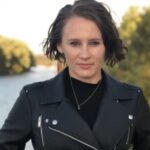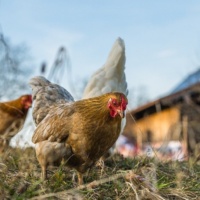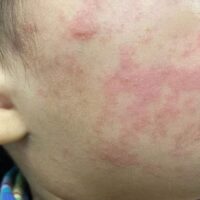FRANKFORT, Ky. — Four years ago to the day that Kentucky reported its first official case of COVID-19, Kandie Adkinson rang a singular bell in the Rotunda, its chime echoing through the Capitol.
She did this to honor those lost to COVID-19, just as she did during much of the pandemic.
Adkinson was joined by Gov. Andy Beshear and others who gathered Wednesday in the Capitol Rotunda to mark the day with grief for those lost to the virus and hope for the future.
In the last four years, nearly 20,000 Kentuckians have died with COVID-19. Many more contracted the illness and survived, like LeRoy Mitchell.
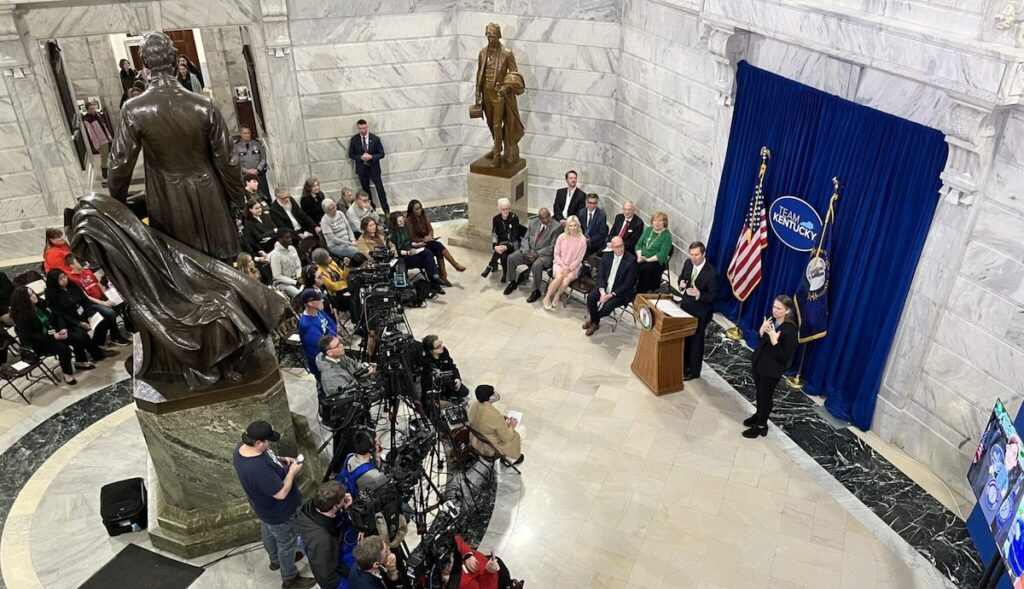
“Most of us know somebody that died because of COVID,” said Mitchell, who drives a bus for the Clark County school system.
His sister died with the virus on Sep. 5, 2020.
“If losing my sister was not devastating enough for me and my family,” he said, “four months later, COVID came for me in the worst kind of way.”
His wife discovered him on Jan. 8, 2021, he said. He was unresponsive and sent to the Clark County Regional Medical Center via ambulance then by helicopter to the University of Kentucky Hospital’s intensive care unit (ICU) in Lexington.
When he got there, he said, he “had no time to spare.” His doctors later told him COVID-19 had caused his diabetic coma, the blood clot in his lung and was “trying to shut down my kidneys.”
He then went on oxygen. Mitchell spent three weeks in the hospital, followed by rehabilitation for two weeks. He grew weak in the hospital, losing 50 pounds during his ordeal.
“I … basically went back to being like an infant, baby stage. I could not do anything for myself,” he said. His road to recovery — complete with a wheelchair, walker, oxygen tank and supportive wife — took eight months, he said.
Ultimately, Mitchell told those gathered Wednesday, “COVID lost. And I won with life.”
‘What good can come out of it?’
Beshear signed a proclamation Tuesday making March 6 a “Day of Compassion.”
In the future, he said, “we want to, as much as we can every year, not just talk about the loss — and loss is important — but also talk about what good can come out of it?”
“While we don’t face a pandemic, we still face challenges right now. And if we could just approach them with a little bit of the same, at least, attempt to understand each other and love each other, then this world could be a much better place.”
March 6 should be a time to reflect, he said, “where we always say that we’re going to try to do better and better and better as the years go by.”
‘Speak their names’
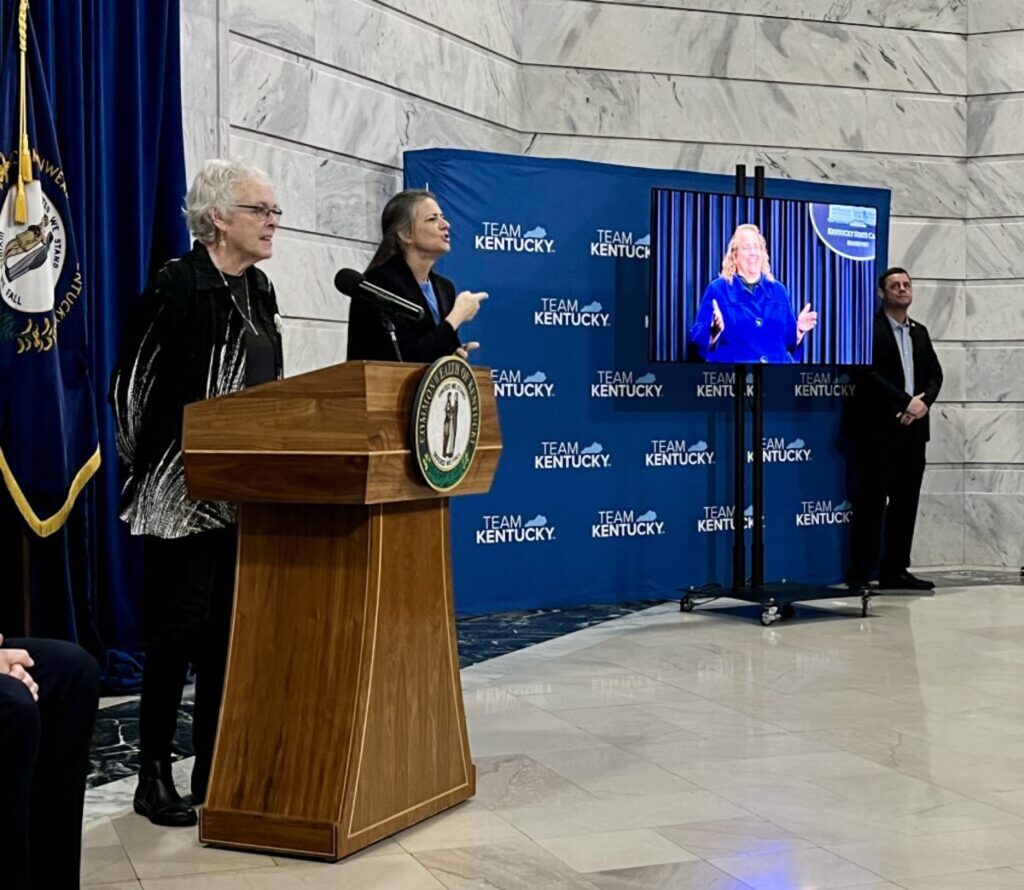
Virginia Moore rose to fame in Kentucky and beyond for her presence at Beshear’s public briefings broadcast statewide. She stood beside him for years, interpreting his words into American Sign Language day after day.
Moore died in 2023 on Derby Day from complications following heart surgery, which her widow, Rowena Holloway, said were caused by a virus, “most likely” COVID-19.
“Virginia was just a force to be reckoned with,” Holloway said. “She leaves a legacy like very few people I’ve ever met and it’s not just because she was my wife.”
In the COVID-19 Memorial, an Amanda Mathews sculpture in Frankfort that was unveiled in 2023, Holloway feels “the souls and the spirits of everybody that we lost” during the pandemic.
“A little bit of Virginia is out there too, hovering over that memorial, in these halls, the 30 years she put in with state government, and the love she felt with Gov. Beshear, ” said Holloway.
“In their memory, let’s let love and kindness be our roadmap,” Holloway said. “We all die twice: once when our body gives out and once when people stop mentioning our name. So, keep them all alive. Speak their names.”
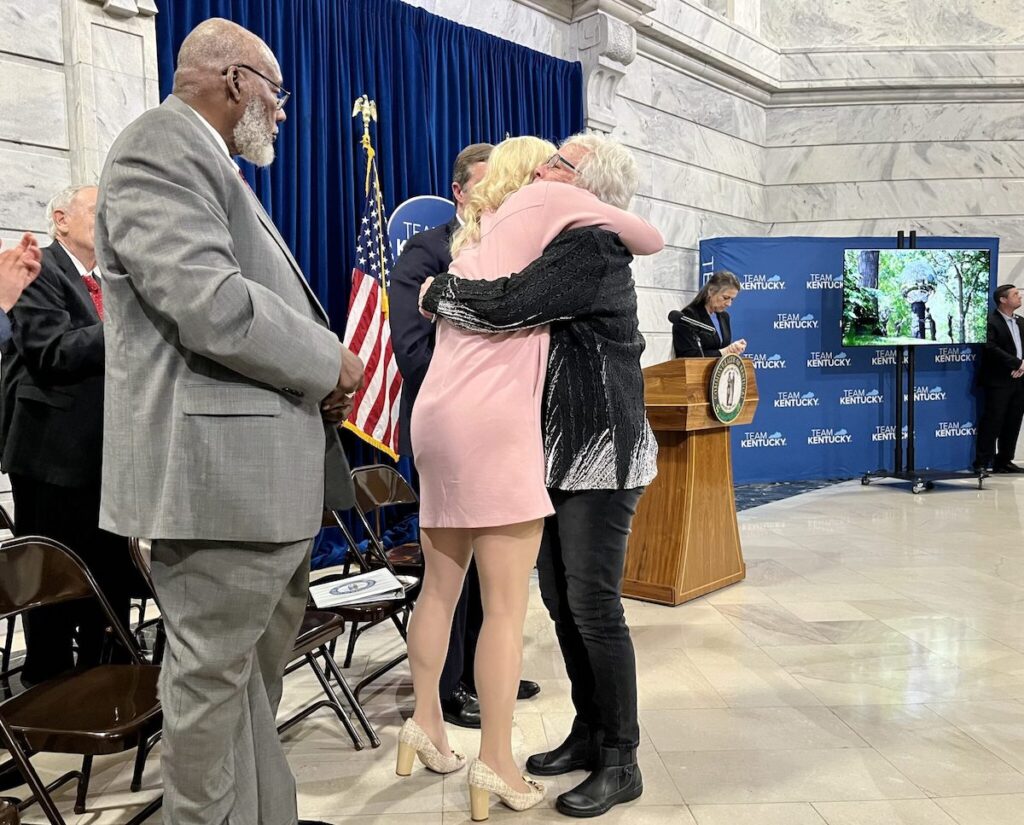
This article is republished under a Creative Commons license from Kentucky Lantern, which is part of States Newsroom, a network of news bureaus supported by grants and a coalition of donors as a 501c(3) public charity. Kentucky Lantern maintains editorial independence. Contact Editor Jamie Lucke for questions: info@kentuckylantern.com. Follow Kentucky Lantern on Facebook and Twitter.
Sarah Ladd is a Louisville-based journalist and Kentuckian. She has covered everything from crime to higher education. In 2020, she started reporting on the COVID-19 pandemic and has covered health ever since.
